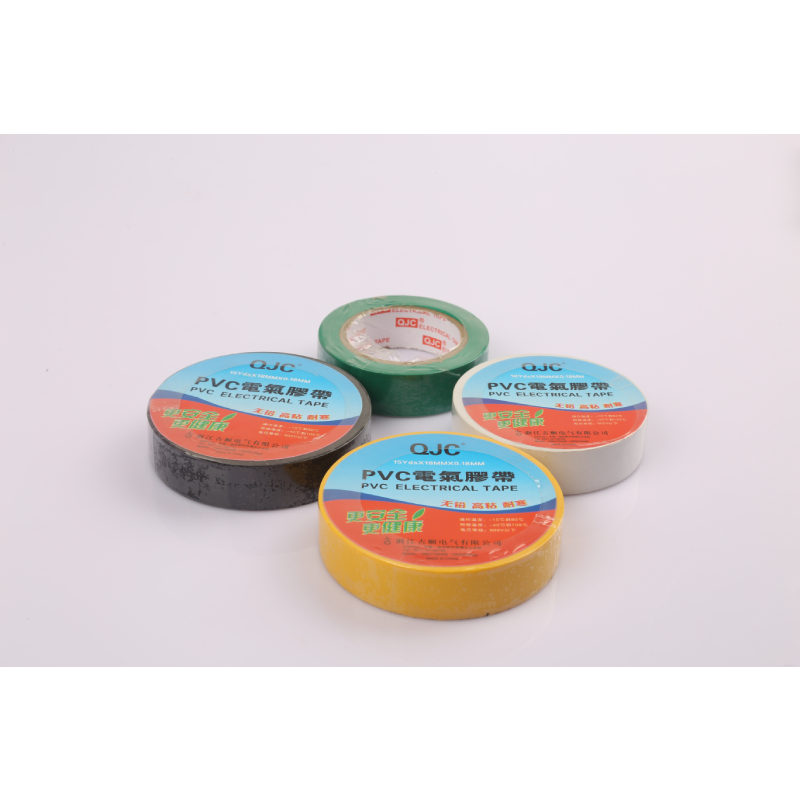The Importance of PVC Tape for Electrical Wires
In today's fast-paced technological world, the safe and efficient management of electrical wires is more critical than ever. A vital tool in this regard is PVC tape, an essential product used across various industries for electrical insulation and protection. This article will explore the characteristics and advantages of PVC tape, its applications in electrical wiring, and why it is a preferred choice for electricians and technicians alike.
Understanding PVC Tape
PVC tape, or polyvinyl chloride tape, is a type of flexible, durable plastic tape widely known for its insulating properties. It is primarily used in electrical applications due to its excellent resistance to moisture, chemicals, and abrasion, making it ideal for various environmental conditions. The tape is available in multiple colors, allowing for easy identification and color-coded wiring systems, which can improve organization and safety.
Key Characteristics of PVC Tape
1. Electrical Insulation The primary function of PVC tape is to act as an insulator. It can effectively prevent electrical currents from escaping wires, reducing the risk of short circuits and electrical fires.
2. Temperature Resistance PVC tape can handle a wide range of temperatures, making it suitable for both indoor and outdoor applications. It remains functional in extreme weather conditions, ensuring that electrical connections are safeguarded from environmental factors.
3. Adhesion PVC tape features a strong adhesive, allowing it to stick securely to various surfaces. This adhesive property ensures that the tape does not peel or lift over time, maintaining a reliable protective layer over wires and connections.
4. Flexibility The flexibility of PVC tape allows it to conform to the contours of different wire sizes and shapes. This adaptability is crucial in tight spaces or where multiple wires need to be bundled together.
pvc tape for electrical wires

Applications of PVC Tape in Electrical Wiring
The applications of PVC tape in electrical wiring are vast and varied
- Wire Insulation One of the primary uses of PVC tape is to insulate exposed wires. By wrapping the tape around wire connections, electricians can protect against accidental contact that could lead to electric shock.
- Cable Bundling PVC tape is effective for bundling multiple electrical wires together. This not only organizes wires but also minimizes the risk of tangling and wear over time.
- Temporary Repairs In some cases, PVC tape can be used for temporary repairs on electrical cables. While not a permanent solution, it can provide immediate protection until a more permanent fix can be made.
- Marking and Identification Different colored PVC tapes are commonly used to mark wires for easy identification. This is particularly useful during installation to help avoid confusion and ensure that wires are connected to the correct sources.
- Weatherproofing For outdoor electrical applications, PVC tape can help protect wiring from rain, snow, and sunlight. It acts as a barrier against moisture and UV rays, extending the lifespan of outdoor electrical installations.
The Conclusion
In summary, PVC tape is an indispensable resource in the field of electrical wiring. Its wide array of characteristics—insulation, flexibility, temperature resistance, strong adhesion, and flame retardancy—makes it a top choice for professionals undertaking electrical work. Whether for insulation, bundling, marking, or temporary repairs, PVC tape enhances safety and efficiency. As technology continues to evolve and electrical systems become more complex, the significance of PVC tape will remain, ensuring that electricians can conduct their work with confidence and reliability. Thus, investing in high-quality PVC tape is not just a good practice; it is an essential aspect of working safely in the electrical industry.
-
XIANGFAN Rubber Tape-Ultimate Solutions for All Your Insulation NeedsNewsJun.24,2025
-
XIANGFAN Rubber Tape-Protection for Industrial and Residential ApplicationsNewsJun.24,2025
-
XIANGFAN Rubber Tape: Superior Safety and Sealing for Demanding EnvironmentsNewsJun.24,2025
-
XIANGFAN Rubber Tape: Reliable Solutions for Every Electrical ChallengeNewsJun.24,2025
-
XIANGFAN Electrical & Industrial Tape: Powering Reliability Across IndustriesNewsJun.24,2025
-
XIANGFAN Electrical & Industrial Tape: Excellence in Every ApplicationNewsJun.24,2025
